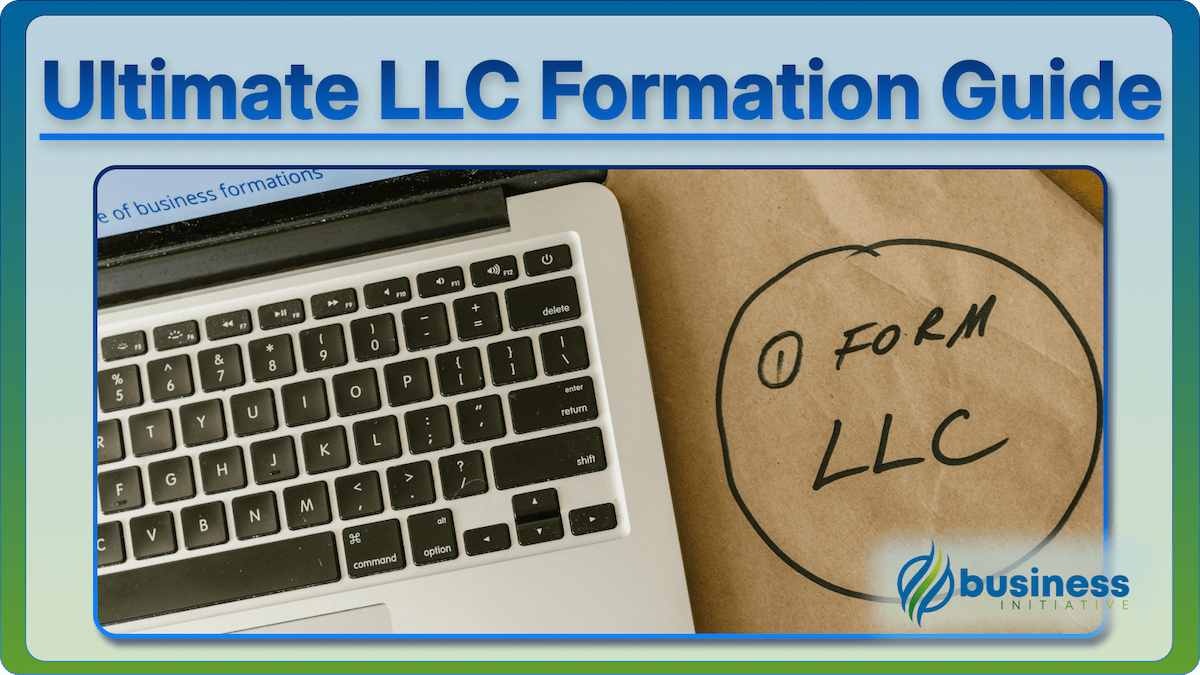You run multiple businesses.
Each has its own compliance requirements. Deadlines overlap. Requirements conflict.
You need a system.
Multi-entity tracking. Centralized calendar. Entity-specific checklists. Your organization.
This guide shows you how.
Tracking systems. Calendar management. Checklist organization. Your compliance.
Read this. Build your system. Keep all entities in good standing.
 Key Takeaways
Key Takeaways
- Multi-entity compliance requires centralized tracking—use one system to track all entities, states, and deadlines to prevent missed filings
- Create entity-specific checklists—each entity needs its own compliance checklist based on entity type, state, and requirements
- Use a master compliance calendar—track all deadlines for all entities in one calendar with entity labels and color coding
- Set up registered agent services for all entities—centralize registered agent services to simplify document receipt and compliance reminders
- Review compliance status regularly—check all entities monthly to ensure nothing is missed and all entities maintain good standing
 Table of Contents
Table of Contents

Why System Matters
A system prevents chaos.
What happens without a system:
- Deadlines missed
- Entities lose good standing
- Requirements confused
- Compliance chaos
What happens with a system:
- Deadlines tracked
- Entities maintain good standing
- Requirements clear
- Compliance organized
The reality: A system is essential for multi-entity compliance.
Centralized Tracking
Track all entities in one place:
Tracking System
What to track:
- Entity name and type
- State of formation
- Registered agent
- Compliance deadlines
- Filing status
- Good standing status
Why it matters: Centralized tracking provides overview.
Entity Database
What to maintain:
- Entity information
- State requirements
- Compliance history
- Filing records
- Status updates
Why it matters: Database provides detailed tracking.
Status Dashboard
What to display:
- All entities
- Current status
- Upcoming deadlines
- Overdue items
- Good standing status
Why it matters: Dashboard provides quick overview.
Pro tip: Use centralized tracking for all entities. See our compliance dashboard guide for tracking systems.

Entity-Specific Checklists
Create checklists for each entity:
Entity Checklist Template
What to include:
- Entity name and type
- State of formation
- Annual report deadline
- Franchise tax deadline
- State-specific filings
- Registered agent information
Why it matters: Entity-specific checklists ensure accuracy.
Checklist Organization
How to organize:
- By entity name
- By state
- By deadline date
- By entity type
Why it matters: Organization prevents confusion.
Checklist Maintenance
What to maintain:
- Update checklists as requirements change
- Review checklists regularly
- Verify checklist accuracy
- Archive completed checklists
Why it matters: Maintenance ensures checklists stay current.
Pro tip: Create entity-specific checklists. Organize by entity, state, and deadline. See our compliance checklist guide for checklist templates.
Master Calendar
Use one calendar for all entities:
Calendar Setup
What to set up:
- All entity deadlines
- Entity labels
- Color coding by entity
- Multiple reminders
- Recurring events
Why it matters: Master calendar provides unified view.
Calendar Organization
How to organize:
- By deadline date
- By entity
- By state
- By filing type
Why it matters: Organization prevents missed deadlines.
Calendar Review
What to review:
- Weekly calendar review
- Monthly compliance check
- Quarterly status review
- Annual planning
Why it matters: Regular review prevents missed deadlines.
Pro tip: Use master calendar for all entities. Label and color code by entity. See our compliance calendar guide for calendar setup.

Registered Agent Strategy
Centralize registered agent services:
Single Service Provider
What to use:
- One registered agent service for all entities
- Centralized document receipt
- Unified compliance reminders
- Single portal access
Why it matters: Single provider simplifies management.
Service Organization
How to organize:
- Entity-specific accounts
- Labeled by entity name
- Organized by state
- Tracked in one system
Why it matters: Organization prevents confusion.
Reminder Management
What to manage:
- Compliance reminders for all entities
- Deadline alerts
- Status updates
- Document notifications
Why it matters: Reminder management prevents missed deadlines.
Pro tip: Centralize registered agent services. Use one provider for all entities. See our registered agent guide for service options.
Review Process
Review compliance regularly:
Weekly Review
What to review:
- Upcoming deadlines
- Calendar for next week
- Entity status
- Filing requirements
Why it matters: Weekly review prevents missed deadlines.
Monthly Review
What to review:
- All entity status
- Compliance calendar
- Filing history
- Good standing verification
Why it matters: Monthly review ensures ongoing compliance.
Quarterly Review
What to review:
- Compliance system effectiveness
- Process improvements
- Checklist updates
- Calendar optimization
Why it matters: Quarterly review improves system.
Pro tip: Review compliance regularly. Weekly, monthly, and quarterly. See our compliance autopilot guide for automation strategies.
Your Next Steps
Build your system. Track all entities. Maintain good standing.
This Week:
- Review this guide
- Set up centralized tracking
- Create entity-specific checklists
- Set up master calendar
This Month:
- Add all entities to tracking system
- Create checklists for all entities
- Set up registered agent services
- Test your system
Going Forward:
- Review compliance weekly
- Update checklists as needed
- Maintain master calendar
- Keep all entities in good standing
Need help? Check out our registered agent guide for service options, our compliance failures guide for avoiding problems, our compliance dashboard guide for tracking systems, our compliance calendar guide for calendar setup, our compliance checklist guide for checklist templates, our compliance autopilot guide for automation, and our multi-entity management guide for additional strategies.
Stay informed about business strategies and tools by following us on X (Twitter) and signing up for The Initiative Newsletter.
FAQs - Frequently Asked Questions About Multi-Entity Compliance: Keeping Several Companies in Good Standing Without Chao

How do I set up a centralized tracking system for compliance across multiple LLCs and corporations?
Create a single system that tracks entity names, states, registered agents, filing deadlines, and good standing status for every entity you own.
Learn More...
A centralized tracking system should include an entity database with each entity's name, type, state of formation, registered agent, compliance deadlines, filing status, and good standing status.
Use a status dashboard that displays all entities at a glance, highlights upcoming deadlines, flags overdue items, and shows current good standing status.
Many founders use spreadsheets, project management tools, or professional registered agent portals that support multiple entities. The key is having one place where you can see everything instead of checking multiple systems.
Why do I need entity-specific checklists instead of one general compliance checklist?
Each entity has different deadlines, state requirements, and filing obligations based on its type and state of formation.
Learn More...
An LLC in Delaware has different annual report deadlines and franchise tax requirements than a corporation in California. A general checklist can't capture these entity-specific details.
Entity-specific checklists should include the entity name and type, state of formation, annual report deadline, franchise tax deadline, state-specific filings, and registered agent information.
Organize checklists by entity name, by state, by deadline date, or by entity type—whichever method makes it easiest for you to ensure nothing falls through the cracks. Update them whenever requirements change.
What should a master compliance calendar include for managing multiple businesses?
A master calendar should contain all deadlines for every entity, color-coded by entity, with multiple reminders and recurring events.
Learn More...
Set up your master calendar with every compliance deadline across all entities—annual reports, franchise taxes, license renewals, and state-specific filings—all in one unified view.
Color-code entries by entity so you can quickly identify which business each deadline belongs to. Add entity labels to each event for clarity.
Set multiple reminders per deadline (e.g., 30 days, 14 days, and 3 days before) and make recurring deadlines repeat automatically. Review the calendar weekly, conduct a monthly compliance check, and do a quarterly status review to catch anything that might have been missed.
Should I use the same registered agent service for all my entities?
Yes—using one registered agent service for all entities simplifies management, provides centralized document receipt, and unified compliance reminders.
Learn More...
A single registered agent provider gives you one portal to access documents for all entities, one set of compliance reminders, and one point of contact for any issues.
Organize accounts within the service by entity name and by state. This prevents confusion about which documents belong to which business.
Many professional registered agent services offer volume discounts for multiple entities, which can reduce your per-entity cost while simplifying your operations significantly.
How often should I review compliance status for all my entities?
Review weekly for upcoming deadlines, monthly for overall entity status, and quarterly for system effectiveness and process improvements.
Learn More...
Weekly reviews should cover upcoming deadlines for the next seven days, calendar entries for the following week, entity status updates, and any new filing requirements.
Monthly reviews should assess all entity statuses, verify good standing across the board, review the compliance calendar, and check filing history for completeness.
Quarterly reviews should evaluate whether your compliance system is working effectively, identify process improvements, update checklists with any regulatory changes, and optimize your calendar setup.
What happens if one of my entities loses good standing while I'm managing multiple businesses?
A lost good standing can result in penalties, inability to enforce contracts, loss of liability protection, and potential administrative dissolution.
Learn More...
When an entity loses good standing—typically due to missed annual reports or unpaid franchise taxes—the state may impose penalties, prevent you from filing lawsuits on behalf of that entity, and eventually dissolve it administratively.
With multiple entities, the risk of missing a deadline multiplies because requirements overlap and vary by state. One missed filing for one entity can cascade into bigger problems if it goes unnoticed.
This is exactly why a centralized tracking system matters. A well-organized compliance dashboard flags overdue items immediately, giving you time to resolve issues before they escalate to dissolution or loss of protection.
Sources & Additional Information
This guide provides general information about multi-entity compliance. Your specific situation may require different considerations.
For registered agent services, see our Registered Agent Guide.
For compliance failures, see our Compliance Failures Guide.
For compliance tracking, see our Compliance Dashboard Guide.
For compliance calendars, see our Compliance Calendar Guide.
For compliance checklists, see our Compliance Checklist Guide.
For compliance automation, see our Compliance Autopilot Guide.
For multi-entity management, see our Multi-Entity Management Guide.
Consult with professionals for advice specific to your situation.


